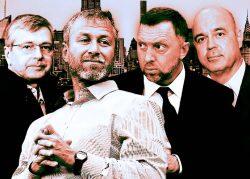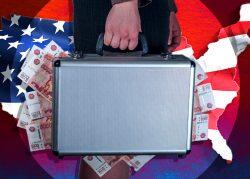Russian oligarchs, global pariahs after Vladimir Putin’s invasion of Ukraine, are getting a warm welcome in Dubai, undercutting worldwide sanctions.
“Sanctions are only as strong as the weakest link,” Adam M. Smith, a lawyer and former adviser to the U.S. Treasury Department office that administers such measures, told the New York Times. “Any financial center that is willing to do business when others are not could provide a leak in the dike and undermine the overall measures.”
The oil-rich cosmopolitan resort and financial center in the United Arab Emirates, a close U.S. partner on Middle Eastern security matters, has in recent years become a popular playground for the Russian rich, asking few questions about the sources of foreign money.
At least 38 businessmen or officials linked to Russian President Vladimir V. Putin own dozens of properties in Dubai, collectively valued at more than $314 million, according to previously unreported data compiled by the nonprofit Center for Advanced Defense Studies, the Times said.
Putin allies owned at least 76 properties in Dubai, either directly or under the name of a close relative, and probably many more, according to the Center for Advanced Defense Studies, a Washington nonprofit that collects data on global conflicts. The owners include a former provincial governor and nuclear power plant manager, a construction magnate and former senator and a Belarusian tobacco tycoon. Six of them have been sanctioned by the U.S. or European Union, and another oligarch facing such measures has a yacht moored there.
As governments around the globe impose sweeping sanctions on Russian financial institutions and Putin’s wealthy inner circle, even notoriously secretive banking centers such as Switzerland, Monaco and the Cayman Islands have begun freezing accounts, seizing mansions and impounding yachts.
The U.A.E., Saudi Arabia and Egypt stand out in their reluctance to oppose the invasion. Asked for solidarity in a moment of crisis, each nation instead prioritized relations with Moscow. The Emirates and Saudi Arabia brushed off American pleas for increased oil supplies to soothe energy markets. Egypt proceeded with a $25 billion loan from Russia to finance a nuclear power plant.
“It should be a clarifying moment,” said Michael Hanna, U.S. program director for the nonprofit International Crisis Group. “That has to be pretty bracing.”
An Arab businessman who rents high-end furnished apartments in Dubai described “incredible demand” from Russians since the invasion. Russians in Dubai say they appreciate the hospitality.
“Having a Russian passport or Russian money now is very toxic — no one wants to accept you, except places like Dubai,” said a Russian businessman who took refuge there, speaking on the condition of anonymity for fear of alienating Emirati authorities. “There’s no issue with being a Russian in Dubai.”
[New York Times] – Dana Bartholomew
Read more


